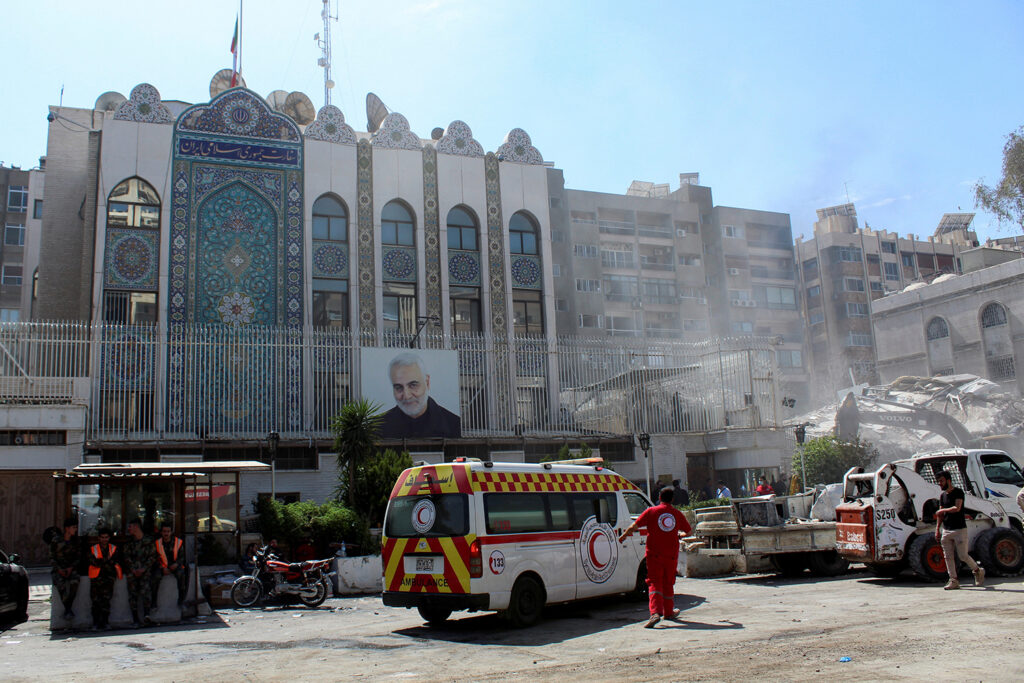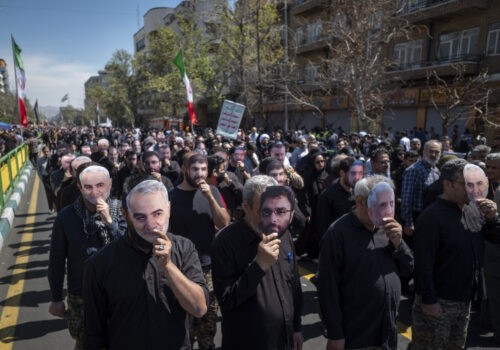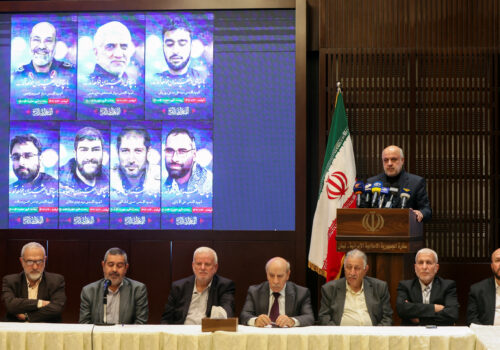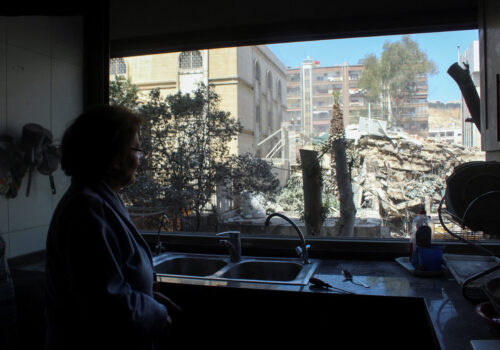Israel’s strike last week on Iran’s consulate in Syria, killing seven Islamic Revolutionary Guard Corps (IRGC) officers, has done the world one favor: It has refocused attention on Iran, which remains the Middle East’s most significant obstacle to peace and stability.
The Israeli attack—killing Mohammad Reza Zahedi, reportedly the IRGC Quds Force commander for Syria and Lebanon—was either strikingly bold or recklessly provocative, depending on your perspective. The Biden administration has insisted it had no advance knowledge of the airstrike.
US officials said they had gathered intelligence indicating that Iran would launch a retaliatory attack, although the timing and target remain unknown; reports said that the attack would likely unfold sometime before the end of Ramadan, which Iranians are celebrating today. For its part, Israel has put its forces on high alert and could strike back again at Iran, depending on Tehran’s next move.
It’s tempting to contribute to the breathless speculation, which I’ll do only by reminding readers that Tehran is unlikely to respond in any manner that would trigger a direct Israeli or US attack on its soil. Iran has been the biggest beneficiary of the war thus far, so why would it take unnecessary risk?
Most mystifying about all the reporting following Hamas’ horrifying October 7 terrorist attack on Israel and the six months of bloody war in Gaza that has followed is how little focus has been placed on Iran’s complicity, gains, and thinking.
“The post-October 7 strategic landscape in the Middle East is one that was largely created by Iran and that plays to its strengths,” writes Brookings’ Suzanne Maloney in a must-read Foreign Affairs essay. “Tehran sees opportunity in chaos. Iranian leaders are exploiting and escalating the war in Gaza to elevate their regime’s stature, weaken and delegitimize Israel, undermine US interests, and further shape the regional order in their favor. The truth is that the Islamic Republic is now in a better position than ever to dominate the Middle East.”
Given that, it’s worth remembering that the most effective way to address Iran’s regional ambitions, which require little more than continued violence and chaos, is to return as quickly as possible to the path of normalization between Israel and modernizing Arab states—in particular Saudi Arabia.
As the Atlantic Council’s Jonathan Panikoff writes, “Resolving the conflict would enhance Israel’s security against its true existential threat, Iran, by enabling Israel to normalize relations with almost all of its Arab neighbors, not just a few.”
Perhaps here is the real point: If left unchecked, the perils of despotic regimes like Iran and Russia grow. Failure to act only encourages their common cause, from the Middle East to Ukraine. In the Middle East, China, Russia, and Iran recently held live-fire exercises in the Gulf of Oman. In Ukraine, Chinese and Iranian support for the Russian war effort is expanding.
There’s no wishing away this gathering danger, which only gains momentum from neglect.
Frederick Kempe is president and chief executive officer of the Atlantic Council. You can follow him on Twitter: @FredKempe.
This edition is part of Frederick Kempe’s Inflection Points Today newsletter, a column of quick-hit insights on a world in transition. To receive this newsletter throughout the week, sign up here.
Further reading
Wed, Apr 10, 2024
Four ways Iran could retaliate against Israel’s latest strike
New Atlanticist By Jonathan Panikoff
The question is whether Iran most wants to meaningfully deter Israel or to avoid regional escalation—because Tehran probably cannot do both.
Tue, Apr 9, 2024
Iran talks a big game. But it’s limited in its ability to respond to Israel.
IranSource By
There is no doubt that Tehran will respond in some capacity. However, the main issue is that Iran cannot provide an effective and equivalent response.
Fri, Apr 5, 2024
Most GCC states condemned the attack on the Iranian embassy complex in Syria. An escalation is what they fear most.
MENASource By
Fearful that hostilities between Israel and Iran could spiral out of control, the GCC states are keen to avoid the heat as much as possible.
Image: An ambulance is parked outside the Iranian embassy after a suspected Israeli strike on Monday on Iran's consulate, adjacent to the main Iranian embassy building, which Iran said had killed seven military personnel including two key figures in the Quds Force, in Damascus, Syria on April 2, 2024. REUTERS/Firas Makdesi



